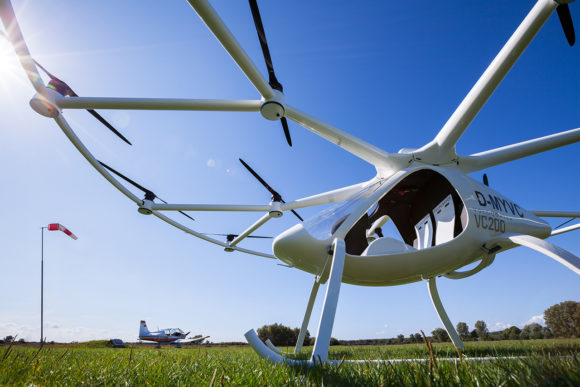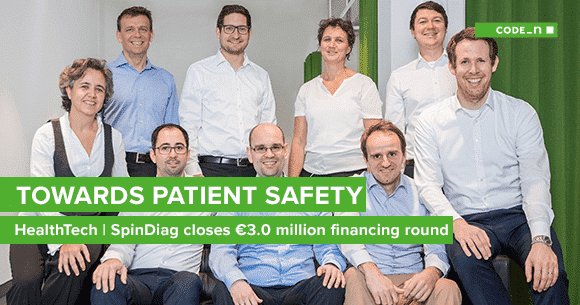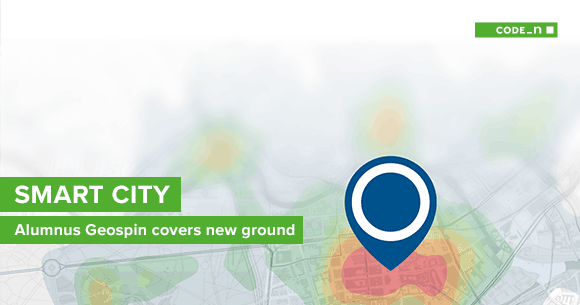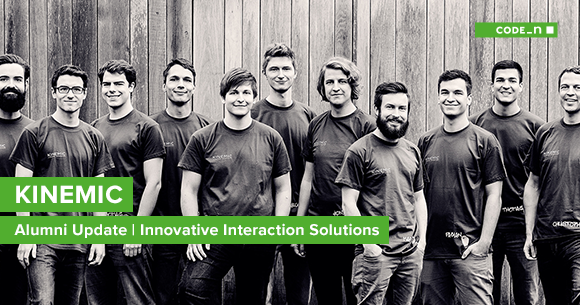Guest feature | Karlsruhe – here is where the tech startups are
Karlsruhe is excited to welcome the CODE_n new.New Festival including this year’s 52 finalists of the startup contest. The whole city is known for influencing the industrial history of the German southwest – not only by inventing bicycles and cars some decades ago, but also by shaping today’s digital transition. The universities located in Karlsruhe combined with one of Europe’s highest density of ICT-SMEs involved in research and development and quite a few renowned research institutes produce a unique number of interesting emerging startups, especially in the field of hightech and ICT. Unsurprisingly, two of the 52 CODE_n finalists are from Karlsruhe.
We would like to introduce some of the most promising young companies based in the “Fächerstadt” to you:
CODE_n finalist otego – revolutionizing the sensor market
otego is poised to be the first manufacturer of low-cost thermoelectric generators (TEGs) that are suitable for mass use. By avoiding batteries in IoT devices, otego TEGs are a sustainable solution for harvesting energy using wireless sensors and actuators. otego aims to sell its generators directly to sensor manufacturers and smart home OEMs. To achieve this, the team is setting up its own production line (capacity 1 million TEGs per year) and is already in regular contact with many potential customers.
CODE_n finalist Kinemic – gesture control at a new level
Kinemic develops software to control and interact with digital devices – from smart watches, to smartphones, AR glasses, and PCs. All it takes is a few hand and arm motions. Kinemic is currently developing its first finished products with major German enterprises. Later, the plan is to license the patented technology to OEMs and other software developers.
ArtiMinds Robotics – redefining the way of robot programming
ArtiMinds fills the gap between autonomous and self-learning robots and classical industrial robots by providing software that is widely applicable and specialized in extremely fast and intuitive generations of complex, sensor-adaptive motion programs for robot arms, grippers and tools. This allows the industrial use and application of robotics even for varying processes and products and small production lots.
Blue Yonder – making big data better data
Blue Yonder is a leading provider of cloud-based predictive applications for retail, manufacturing, insurance and finance – using big data and all its possibilities. The company’s founder worked as a physicist at CERN for many years and developed a wide range of algorithms to deal with large amounts of data to promote machine learning. With its product, the Predictive Analytics Suite, Blue Yonder enables businesses to actively detect and use the quality and not just the quantity which is hidden inside big data.
Cubuslab – seamless solutions for science
Many science labs are still defined by manual data transfer. Cubuslab wants scientists to focus on their passion, research, again and provides a holistic approach by using connectors that link individual lab devices to a larger system and therefore enable automated workflows. Any laboratory device can be connected via plug and play, repetitive workflows are simplified and lab data is visualized in real time. Bidirectional communication between the lab and a server / the cloud guarantees immediate information and telecommands.
e-volo – urban mobility going green
e-volo developed the world’s first certified multicopter, the volocopter, which runs on all-electric motors and 18 rotors. Due to its electric propulsion, it has no tailpipe emissions and is impressively quiet. In 2016, a first manned flight marked a step forward in urban mobility and received a “permit-to-fly” as an ultralight aircraft from German aviation authorities. The Volocopter is made of a light-weight, fiber composite material. In addition to cruise flights, it can also take-off and land vertically as well as hover in the air.

e-volo’s Volocopter VC200 (© e-volo, by Nikolay Kazakov)
GoSilico – developing medication faster and cheaper
How could the development of new medication and bioprocesses be made significantly cheaper and faster? GoSilico strives to substitute elaborate wet lab experiments with computer simulations. The company provides physico-chemical models that allow to obtain a deeper understanding of the processes and to facilitate fulfilling quality-by-design demands of regulatory instances. GoSilicos’ in-silico bioprocess development can therefore help enterprises to save money and time while allowing to improve the prospect of success in the development of new drugs.
Pace – connecting your car to tomorrow
Pace develops an app that promises the future of driving by making driving more stressless, cheaper and also more secure. The car connects to smartphones via Bluetooth and many options are provided: an automatic SOS, a fuel saver coach, a find-your-car function, an electronic driver’s logbook, a performance monitor, traffic monitoring, technical analyses and some more. All that’s needed within the car is an on-board diagnostic system interface (OBD II). Pace puts a focus on data security and the driver’s security.
Rüdenauer 3D Technology – product development going virtual
Mechatronics brought to a new level by 3D-software. With Rüdenauer 3D Technology’s product “Cross Connected Holo Deck”, the character of prototypes will change. Products can be developed virtually and interactively. Thus: faster, cheaper, more flexible to customer requirements and by teams allocated all over the world. Bringing developers and the virtual prototype together in a single virtual environment, the software allows for real-time simulations and testing in high-end 3D quality.
Vincent Systems – touch sensing prostheses
The Vincent Systems GmbH is advancing medical technology by designing and producing innovative hand prostheses. Their products combine individually movable digits with a fully movable thumb – each finger being able to be controlled electronically using muscle signals of the prosthesis wearer. The newest generation now also includes touch sensing, a breakthrough in the class of bionic hand prostheses. Vincent Systems also provides prostheses for children between 5 and 15, a so far uncovered niche which requires specific sizes and flexible hand prostheses based on the customers’ needs.
3D-USCT – new ways of detecting breast cancer
Breast cancer is one of the most common and fatal cancerous diseases among women. In the project “Ultrasound Computer Tomography” (USCT) a new imaging methodology for early breast cancer detection is developed. It promises three dimensional images of the breast with high spatial resolution. The USCT combines groundbreaking technologies with the necessity to deal with large amounts of raw data. The development of hardware and methods for USCT is carried out by an interdisciplinary and versatile team at the Karlsruhe Institute of Technology KIT, first tests are run in a hospital environment already.







Write a comment